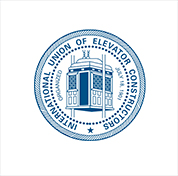Job Description
No one wants to get stuck in an elevator, so elevator installers and elevator repairers work hard to ensure this modern convenience continues running smoothly. Elevator installers and repairers also work on escalators, moving walkways, chairlifts, and other lifts.
Elevator installers and repairers careers include reading blueprints in order to determine the type of equipment needed for installation or repair of elevators, elevator doors, steel frames and cables, motors, or control systems.
When an elevator breaks down, an elevator installer or elevator repairer must determine the issue; they use test equipment such as voltmeters. An elevator repairer career includes performing preventative maintenance, such as oiling and greasing parts, replacing worn parts, and making adjustments.
An elevator installer career includes ensuring new elevators comply with safety regulations and building codes.
Education and Certifications
An elevator installer career or elevator repairer career begins with a four-year apprenticeship, usually sponsored by a union or individual contractor.
In some states elevator installers and repairers need a license. Currently, 35 states require workers to be licensed.
Certification is not required for elevator installers and repairers, but certification helps with job competition and to show specific skills and expertise. Applicants must be at least 18 years old. A high school diploma or equivalent is required and high school classes in math, mechanical drawing, and shop may help applicants compete for apprenticeship openings. Applicants must also pass basic math, reading, and mechanical aptitude tests.
A career in elevator installation and repair typically begins with a 4-year apprenticeship program sponsored by a union, industry association, or individual contractor. For each year of the program, apprentices typically receive at least 144 hours of technical instruction and 2,000 hours of paid on-the-job training. During training, apprentices learn about safety, blueprint reading, mathematics, applied physics, elevator and escalator parts, electrical and digital theory, and electronics. When they finish the apprenticeship program, elevator installers and repairers are fully trained and become mechanics or assistant mechanics. Ongoing training is important for elevator installers and repairers in order to keep up with technological developments throughout their careers.
Elevator installers and repairers can become certified as a Certified Elevator Technician or Certified Accessibility and Private Residence Lift Technician through the National Association of Elevator Contractors.
Elevator installers and repairers may advance in their career through acquiring certification and taking continuing education courses. Possible positions for promotions include mechanic-in-charge, adjuster, supervisor, or elevator inspector.
Essential Career Information
- $76,650 - Median pay, 2017
- $90,900 - Wage of lowest 10 percent, 2017
- $59,800 - Wage of the highest 10 percent, 2017
- 19,700 - Number of jobs, 2016
- 11% - Employment growth forecast, 2016
- Entry-level education requirements - High school diploma or equivalent
Trade Union

Locals
Elevator Constructors 16
Slidell, LA
Newton Blanchard
504-481-7316
selabctc.org/iuec-local16
Elevator Constructors 24
Birmingham, AL
205-591-4185
Important Qualities
- Mechanical Skills. Elevator installers use a variety of power tools and hand tools to install and repair lifts. Escalators, for example, run on tracks that must be installed using wrenches and screwdrivers.
- Troubleshooting Skills. Elevator installers and repairers must be able to diagnose and repair problems. When an escalator stops moving, for example, mechanics determine why it stopped and make the necessary repairs.
- Detail Oriented. Elevator installers must keep accurate records of their service schedules. These records are used to schedule future maintenance, which helps reduce breakdowns.
- Physical Stamina. Elevators installers must be able to perform strenuous work, especially in cramped and confined spaces, for long periods.
- Physical Strength. Elevator installers often lift heavy equipment and parts, including escalator steps, conduit, and metal tracks. Some apprentices must be able to lift 100 pounds in order to participate in a training program.
